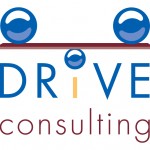January 6,  2010 – … is paved by discovering paths to optimal performance. When we mentioned previously the notion of utilizing our signature strengths to make our dreams realities, we were in fact alluding to discovering paths to continued success (optimal performance) which can then lead to happiness.
2010 – … is paved by discovering paths to optimal performance. When we mentioned previously the notion of utilizing our signature strengths to make our dreams realities, we were in fact alluding to discovering paths to continued success (optimal performance) which can then lead to happiness.
The modern business world has an uneasy relationship with the concept of happiness. While accepting the idea that people want to be happy, the pursuit of happiness is too often relegated to the back seat of immature frivolity for which the business world has no need. And yet, research has indicated that there are many long term benefits to happiness. Happy people tend to be healthier, live longer and be more engaged and more successful at work and in their relationships than less happy people. This would suggest that happiness is actually good for business.
Before we begin, it’s worth noting that the happiness we refer to is not a perpetual state of ecstatic happiness. Ecstatic moments are by implication short lived. Happiness, to be most effective in its benefits, is a dish best served in moderation.
So what is happiness and how can we achieve it? Is happiness merely the hedonistic pursuit of pleasurable experiences as espoused by the Cyrenaics (seeking pleasures of the body) or the Epicureans (seeking pleasures of the mind)? Or perhaps happiness is to be found, as Aristotle had it, by living the “good life” which is a life spent satisfying moral goals, i.e., living a virtuous life that allows for the fullest development of human nature. This in turn begs the question: What is human nature and how can it be developed fully?
Martin Seligman (University of Pennsylvania) defined the good life as “using your signature strengths every day to produce authentic happiness and abundant gratification.” Signature strengths are those universally valued character traits possessed, celebrated and regularly utilized by an individual. Research has shown that consistent use of signature strengths can lead to greater success and productivity in all areas of life. Professionally we experience increased productivity and achieve greater success. In our personal lives we can expect to experience greater success and fulfillment in our relationships. Doing so consistently allows for the full development of our nature.
And the beauty of it all is that this is within our reach. Sonja Lyubomirsky (UC Riverside) concluded from her research that there are three components to an individual’s happiness: genetic set point, circumstances and intentional activity. Genetic set point is, simply put, our genetic predisposition for happiness. Genetic set point accounts for 50% of an individual’s propensity for happiness. Circumstances are those external events occurring in life which can range from the momentarily pleasurable experience to a healthy and satisfying relationship to a great career. Perhaps surprisingly, circumstances account for a mere 10% of an individual’s happiness. The great news is that fully 40% of our propensity for happiness is derived from intentional activities. By choosing certain actions and thinking in a certain manner we have the power to greatly influence our overall state of happiness.
Consider how thinking in a different manner might impact on your perspective on life and open up new opportunities for growth. Remember the example given last month of Roger Bannister’s decision not to remain captive to the limiting belief that it was humanly impossible to break the 4 minute mile. Bannister dared to think differently – thereby breaking the limiting belief – which when coupled with his talent and training, enabled him to break the 4 minute barrier.
Consider how adopting a new line of thought can propel you to take intentional, constructive action towards reaching your goals. Such a course of action, when geared towards a value driven goal, opens up the possibilities of success, growth and ultimately, happiness.
Remember, our motivation is increased productivity and greater success – happiness is a fortunate by-product of the process.
Consider the possibilities.
Adam J. Krim www.driveconsulting.net







